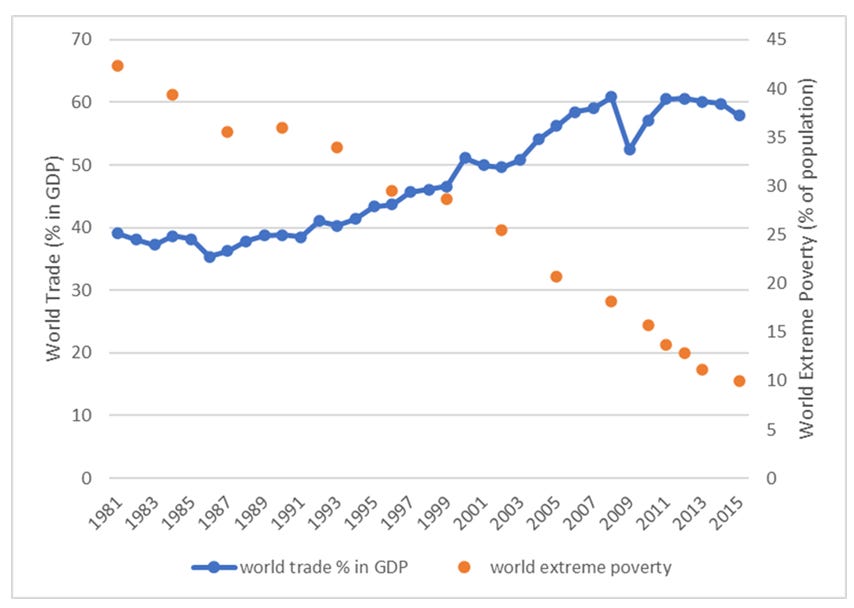Graph of the Day - Globalisation kills poverty
Following the corona outbreak, some countries closed their borders and banned exports of medical supplies. Populistic politicians want their countries to become more “self-sufficient”. According to them, that would also decrease our exposure to viruses like Covid-19. But arguing that more self-sufficiency, aka protectionism, would kill two birds with one stone is terribly wrong.
The arguing is wrong because less trade would make us poorer and leave us with fewer resources to combat viruses. Producing our own ventilators, medicines, vaccines, all the protective equipment we need, would be more expensive than buying from countries that now produce them more efficiently. Some of these products, e.g. ventilators, consist of many parts which now are produced in many different countries all over the world. If we were to produce them ourselves, we would need to set up plants to also produce those parts and extract the raw material which is used in the production processes.
That would result in a low-efficent industry structure since resources would have to be moved from sectors where they are more efficiently used. As a result, our incomes would be lower and and we would have less money to spend on our health-care system. And more importantly, we would have less money for research which would result in fewer new vaccines, medicines, and other innovations that make our lives easier. Self-sufficiency and less trade are recipes for poorer lives.
So, let's put globalisation back on the track! Globalisation has improved peoples' lives all over the world. Thanks to increased globalisation, fewer people suffer from malnutrition than ever before and people live longer and healthier lives than ever before. And world poverty has never been lower.
World trade and world extreme poverty.
Source: World Bank database, https://databank.worldbank.org/home.aspx Note: Poverty headcount ratio at $1.90 a day (2011 PPP) (% of population)




